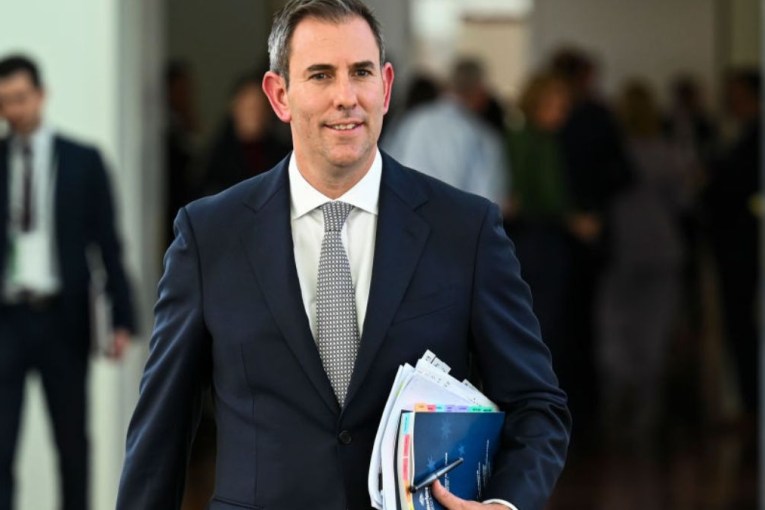Ask the Expert: The market is rife with doom and gloom – there’s no better time to salary sacrifice


Superannuation funds were likely to post a strong return. Photo: TND
Question 1
- Should I salary sacrifice to my super while the market is performing poorly?
Yes, you should.
Nearly everyone has heard of the saying ‘buy low, sell high’ and intuitively it makes sense. Why wouldn’t you want to buy when shares fall in value and are effectively ‘on sale’?
It’s because when markets are having a bad patch there is a lot of negativity around and this then feeds on itself and more people are selling rather than buying, further pushing prices down ever more.
Things brings me to one of Warren Buffett’s famous quotes: “Be fearful when others are greedy, and greedy when others are fearful.”
Again, this makes sense, but it can be hard to do when you are seeing further market falls and in the news it’s all doom and gloom.
Salary sacrificing regularly, regardless of what markets are doing, allows you to take advantage of dollar-cost averaging.
Dollar-cost averaging involves investing a set amount of money at regular intervals.
By investing this way you are not attempting to time the market, as this is near impossible to do. Rather, you are investing a fixed dollar amount regardless of investment market trends.
And this is exactly what is happening with your employer SG contributions.
Let’s look at an example. Say you salary sacrifice $100 per pay into a ‘balanced’ fund.
In the first couple of months the unit price drops from $20 to $10, but after six months it has recovered back to its original $20 price:
| Pay Period | Salary sacrifice | Share/Super fund price | Shares/Units purchased |
| 1 | $100 | $20 | 5.0 |
| 2 | $100 | $20 | 5.0 |
| 3 | $100 | $10 | 10.0 |
| 4 | $100 | $15 | 6.7 |
| 5 | $100 | $15 | 6.7 |
| 6 | $100 | $20 | 5.0 |
| TOTAL | $600 | 38.4 | |
| Average price paid | $15.65 |
As you can see, the average price paid per unit is only $15.65. You now have 38.4 units which are valued at $768 (38.4 x $20) that is a profit of $168 ($768-$600).
Superannuation and dollar-cost averaging go well together as super is a long-term investment. So don’t worry about short-term market movements and stick to your long-term objectives and investment goals.
Question 2
- My wife (70) and I (68) are both on the age pension. We have only $230k in super and own our townhouse and all other assets with no debts. We seem to be coping and living a normal life. Am I being optimistic? I see you dealing with people worried about not having enough super yet they seem to have way more than us. I have always figured out if we run out we could always borrow against the townhouse. Should we be worried and review our situation?
It’s good to be optimistic. If you are coping and have enough funds to live the type of life you want, then your optimism seems well placed.
You are correct in that many people do worry about running out of money, and what happens is they are then too scared to spend too much money and end up dying with large amounts of super still sitting in their accounts.
This is not a good use of their money, unless they had a specific goal of leaving those funds as an inheritance.
Some couples are happy to live on an amount just above the age pension, of say about $45,000 a year. Others want to live on what ASFA considers a ‘comfortable’ retirement of about $70,000 a year.
And, of course, some will want a higher income still.
If your current income is meeting your lifestyle requirements without depleting your super too fast, that’s great.
And remember as you get older you tend to go on holidays less and spend less on entertainment. While you may have some more medical expenses, overall, your expenses generally go down.
As you have said, an option for home owners is to use some equity in their home to provide them with additional income if required. This can be done through Centrelink’s home equity access scheme.
Question 3
- Can a superannuation fund be held in joint names? Or can a fund in one name have the name of a spouse added so that it continues after the death of one partner?
No. Super can only ever be held in one individual’s name.
If your spouse dies, and you are the beneficiary, the super fund may give you the option of commencing or continuing a superannuation income stream (account-based pension) with the proceeds. Or the funds can simply be cashed out.
However, the funds cannot be left in the accumulation phase of super after death.
Craig Sankey is a licensed financial adviser and head of Technical Services & Advice Enablement at Industry Fund Services
Disclaimer: The responses provided are general in nature, and while they are prompted by the questions asked, they have been prepared without taking into consideration all your objectives, financial situation or needs.
Before relying on any of the information, please ensure that you consider the appropriateness of the information for your objectives, financial situation or needs. To the extent that it is permitted by law, no responsibility for errors or omissions is accepted by IFS and its representatives.
The New Daily is owned by Industry Super Holdings








